France Urges Iran To Release Seven French ‘Hostages'
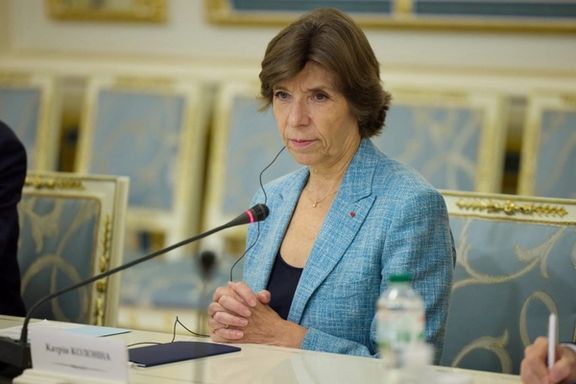
French Foreign Minister Catherine Colonna has called for the release of "seven French hostages" imprisoned in Iran.

French Foreign Minister Catherine Colonna has called for the release of "seven French hostages" imprisoned in Iran.
According to the French Foreign Ministry, in a phone conversation with her Iranian counterpart Hossein Amir-Abdollahian, Colonna called the detention of French citizens in Iran "arbitrary".
Iran often arrests Western citizens on vague charges and uses them as pawns to pressure their countries.
The French Foreign Minister also asked the Islamic Republic to respect international laws and condemned the repression of protesters in Iran.
According to Iran’s Ministry of Foreign Affairs, Amir-Abdollahian once again called Iran's nationwide protests "riots" and claimed that France "incites riots in Iran".
Amir-Abdollahian further referred to the possibility of Europe designating Iran’s Revolutionary Guard as a terrorist organization, saying that the Islamic republic is closely monitoring the behavior of the European Union and will make its next moves accordingly.
The phone conversation comes less than a week after a resolution was passed in the European Parliament against the IRGC.
Despite the approval of this resolution, EU Foreign Policy Chief Josep Borrell stated that the EU is not able to declare the IRGC a terrorist organization at this stage without a ruling from a European court.
Also, the phone call between the foreign ministers of the Islamic Republic and France comes shortly after Tehran announced sanctions against dozens of individuals and entities of the European Union and the UK, including staffers at the French satirical magazine Charlie Hebdo and the mayor of Paris.
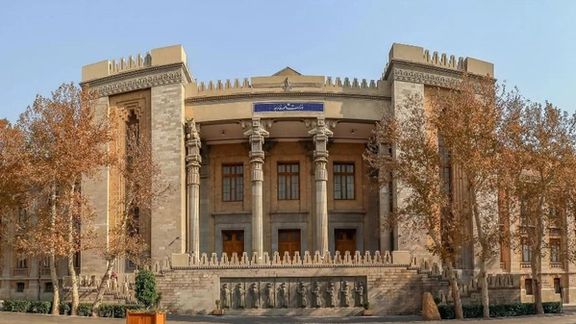
Iran says it has designated over 30 European and British individuals and entities in response to the recent sanctions against its officials over the crackdown on anti-government protests.
The foreign ministry announced in a statement on Wednesday that the targeted EU individuals and entities are targeted “for interference in domestic affairs of the Islamic Republic of Iran and fomenting violence and unrest in Iran.”
Those targeted include Britain’s attorney general and army chief of staff, several European parliamentarians and European military officials.
The French scholar Bernard-Henri Levy and three senior staffers at the French satirical magazine Charlie Hebdo, which recently published a series of cartoons ridiculing Iran’s clerical rulers have been designated by Tehran.
The sanctions would ban the individuals from travelling to Iran and their bank accounts will be blocked. Those targeted are unlikely to have any property in the Islamic Republic, but the symbolic move will confiscate if there were any.
The European Union on Monday imposed sanctions on more than 30 Iranian officials and organizations, including units of the powerful Revolutionary Guards, blaming them for a "brutal" crackdown on unrest and other human rights abuses.
The United States and Britain also issued new sanctions against Iran, reflecting a deterioration in the West's already dire relations with Tehran.
The sanctions are the latest response to Iran's deadly clampdown on unrest after the death of young Iranian Kurdish woman Mahsa Amini in morality police custody in September.
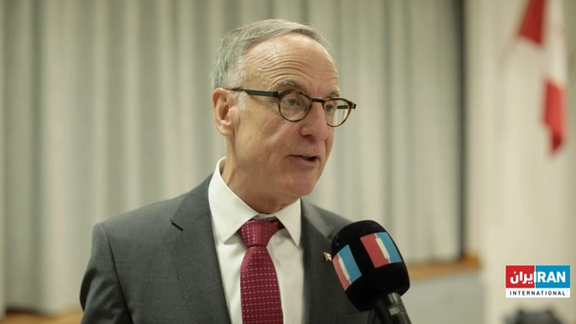
A Canadian lawmaker has told Iran International that Ottawa needs to have a coordinated front against the atrocities of the Islamic Republic and the IRGC, both inside Canada and abroad.
Parliamentary Secretary to the Minister of Foreign Affairs Rob Oliphant told our correspondent that Canada would designate the entirety of Iran’s Revolutionary Guard as a terrorist organization if it was easy and effective to do.
He added that the quickest action the Canadian government can take is limiting the activities of the Islamic Republic “through both the immigration act as well as through the special economic measures act that targets sanctions on those in the IRGC who are most directly responsible for the atrocities which they are committing on behalf of the regime.”
Oliphant maintained that Ottawa plans to sanction somewhere around 10,000 former and current IRGC officers who are the most complicit in atrocities, banning them from coming to Canada or expelling them if they are in the country.
Oliphant added that “We are watching, and we have been absolutely committed to making sure that we get the right people out of the country and not allowed into the country because no one should be able to take advantage of the fact that they’ve been part of the regime; they’ve been part of the murderers, part of the detentions, part of those atrocities.”
In October, Prime Minister Justin Trudeau said Canada has designated Iran's IRGC leadership, adding that “we will restrict financial transactions with the Islamic Republic of Iran associated with the IRGC and the proxies that support them. These actions are some of the strongest measures anywhere against Iran.”
The West on Monday stepped up pressure on Iran over its crackdown on protests and arms supply for the Russian invasion of Ukraine as the US, the European Union and United Kingdom imposed fresh sanctions on Tehran. However, the EU stopped short of designating the IRGC a terrorist outfit, as the European Parliament had voted last week to urge the block to do.
The Canadian official noted that “We are in conversation with other countries to make sure we do it well and we do it as quickly as possible.”
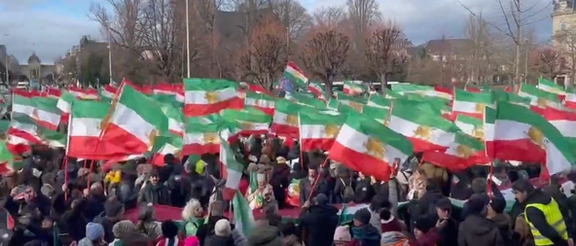
Members of the European Parliament as well as Iranians have called on European politicians to declare the IRGC as a terror group, as it was responsible for leading most of the security forces who killed, maimed and arrested protesters. The issue of Europe listing the IRGC emerged in recent weeks as the Iranian regime has killed more than 500 people during popular protests that started in September, after the death of Mahsa Amini in hijab police custody. Many European officials, including EU Foreign Policy chief Josep Borrell, believe that the move is legally complicated and would obstruct ways to negotiate the revival of the 2015 nuclear deal.
In response to a question about the activities by supporters of the Islamic Republic against the Iranian diaspora in Canada, Oliphant said, “I hear the stories of people who have been harassed, and intimidated; people who feel that there are people who are working for the regime in Canada.”
“What we need is a concerted whole-of-government effort because it’s policing, it’s intelligence, it’s foreign affairs, it’s defense; it’s a series of different people involved in these sorts of decisions. We need to have a one place where people can take their concerns when they have been intimidated, harassed... those things need to be investigated. We need to find out whether Canadian laws have been broken and move ahead. It’s too complicated right now. People don’t know who to call.”
Calling on the Canadians to “go to the local police” if they feel any kind of threat, he added that “There should be one place where people can go to lay a complaint, bring evidence, show it and then it can be investigated. We have the resources now to do it. We just need to put it in a place for public safety particularly by making sure all branches of the government get this work done.”
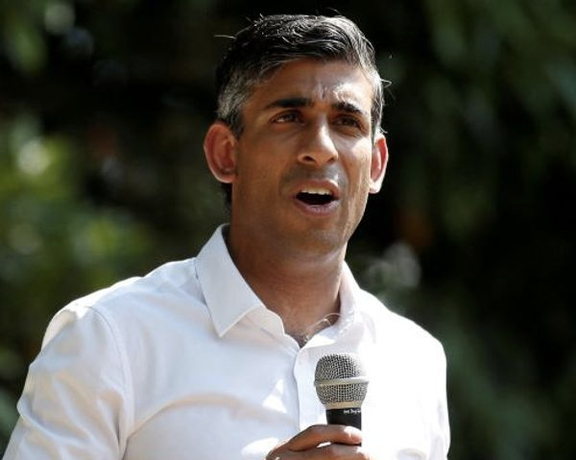
British Prime Minister Rishi Sunak has called on Iran to provide answers about the execution and burial of British-Iranian dual national Alireza Akbari earlier this month.
"The regime is prolonging the suffering of the family and it is sadly typical of that disregard for basic human dignity," Sunak told parliament. "Iran must now provide answers about the circumstances of his death and his burial."
Iran said January 14 that it had executed Alireza Akbari aftersentencing the former deputy defense minister to death on charges of spying for Britain.
"Alireza Akbari, who was sentenced to death on charges of corruption on earth and extensive action against the country’s internal and external security through espionage for the British government's intelligence service ... was executed,” said Mizan website which is affiliated to Iranian judiciary.
The report accused Akbari, arrested in 2019, of receiving 1,805,000 euros, 265,000 pounds, and $50,000 for spying.
Britain called the execution a barbaric act immediately after Iran’s announcement and said it would not go unpunished.
London imposed a fresh round of sanctions on Iranian officials earlier this week.
Akbari was a close ally of Ali Shamkhani, now the secretary of Iran’s Supreme National Security Council.
A source close to the Islamic Revolutionary Guard Corps earlier provided documents to Iran International showing that accusations against Akbari and his death sentence were aimed at weakening Shamkhani’s position in the clerical regime.
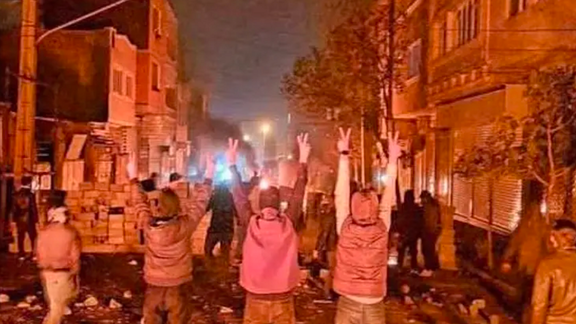
The Islamic Republic continues to use a wide range of punishments for anyone who protests its conduct, but the range of its torture techniques is increasing during the current protests.
The regime’s security forces use violence against protesters on streets, kicking them violently, beating them with batons and shooting at them, but the psychological and physical torture that they exert on detained protesters are harsher and unrelenting.
The regime’s agents beat protesters so badly that in some cases when they appear in court the scars and bruises are so obvious that people can easily understand confessions were made under duress.
The Center for Human Rights in Iran said December 6 that there have been many reports of detained university students being tortured and sexually abused while in state custody. Soha Mortezaei, a former Tehran University female student, who has been repeatedly arrested for engaging in peaceful activism, was physically and sexually assaulted while being transferred to Evin prison after her arrest. “Officers tied Soha’s right hand to the top of one seat and her right leg to the top of another seat while suspended, she was beaten and sexually abused by a female officer,” reported the University Students Trade Unions Council on November 27.
Most of the protesters who are being kept in main prisons are mainly subjected to psychological torture but reports of physical torture get more attention from the public and rights groups. The detainees are constantly threatened to be killed or raped and some of them are victims of white torture, in which prisoners are kept in solitary confinement without any human contact for very long periods of time.
Some protesters, who were usually injured during their arrests or became ill inside prisons, are deprived of medical care or treatment for their wounds as a form of torture. The protesters who are suffering from chronic conditions and need daily medication are put under pressure by not giving them their medicines.
Faraz Haghighatjou, a resident of Shiraz and a member of the oppressed Baha’i religious group, who was arrested during protests in December, once called his family and asked for his medicines and warm clothes but his family could not even find out where he is being kept.
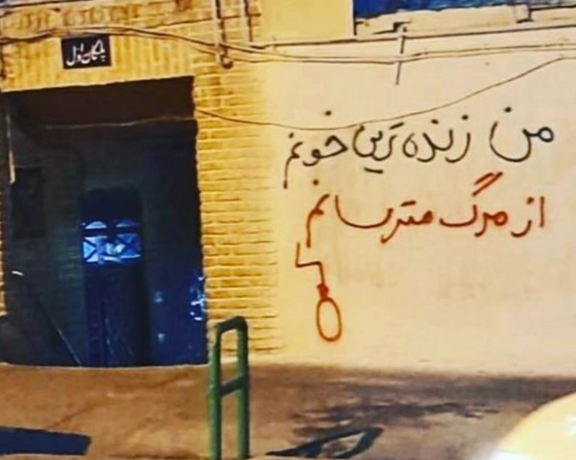
Imprisoned civil and human rights activist Narges Mohammadi last week recounted harrowing details of what is happening inside the women's ward of Tehran’s notorious Evin prison. She said almost all 60 female prisoners there have experienced "terrible inhumane tortures". These women spent from several months to about two years in solitary confinement, some without any human contact.
Another report released by an activist group earlier in the week says 16 young people arrested in Urumieh in November, including several minors, have been tortured and threatened with rape to incriminate each other. The group said that IRGC’s intelligence organization in West Azarbaijan Province has been torturing these young people to ‘confess’ against each other and say they are in contact with foreign intelligence services.
The protesters who were executed by the regime on trumped up charges in December were also said to have confessed to crimes they did not commit under physical and mental torture in prison.
A victim from the religious city of Mashhad in northeastern Iran, said she and eleven others were stripped in front of male officers and then forced to squat jump while the officers “frenziedly laughed.” Others have also said officers had groped their backsides and squeezed their breasts during arrest and interrogations. Many say they were threatened with rape or even rape of their family members.
Armita Abbasi, a young woman of 20, was reportedly raped brutally after being arrested on October 10. She was taken to a hospital in Karaj on October 18 by security forces with multiple injuries including rectal bleeding and evidence of repeated rape. Reportedly, they tried to pressure the doctors to attribute the rape trauma evidence to a time prior to her arrest.
Influential Sunni cleric Mowlavi Abdolhamid in his Friday sermon December 23 referred to reports of rape and torture of detainees. In a tweet on December 5, Abdolhamid had said the accounts of sexual assault on female detainees to humiliate them or to force them to make false “confessions” against themselves corroborate the allegations made by the media.
In a report on December 21 entitled “Brutal Repression in Kurdistan Capital”, Human Rights Watch said it has documented serious abuses, including sexual harassment and assault against detainees.
Such incidents have been reported from detention centers, prisons, and sometimes in places outside the official system such as warehouses out of town in several major cities including Esfahan, Rasht, Tehran, Karaj, Bandar Abbas, Ahvaz, Tabriz, Sanandaj, Amol, and Mashhad.
The torture of prisoners is not limited to the protesters arrested in the current wave of nationwide rallies ignited by the death of 22-year-old Mahsa Amini. The regime is known for its inhumane methods regularly reported by human rights groups.
In a letter by Sepideh Kashani, one of the ecologists and environmentalists detained since 2018 based on accusations of spying for foreign governments, said her interrogators tortured and threatened her with sexual assault for over 1,200 hours during the eight months that she was held incommunicado. She said that her interrogators forced her to stand for hours and was not even allowed to lean his head against the wall. She added that she was being interrogated in a room whose walls were covered by the blood of other protesters.
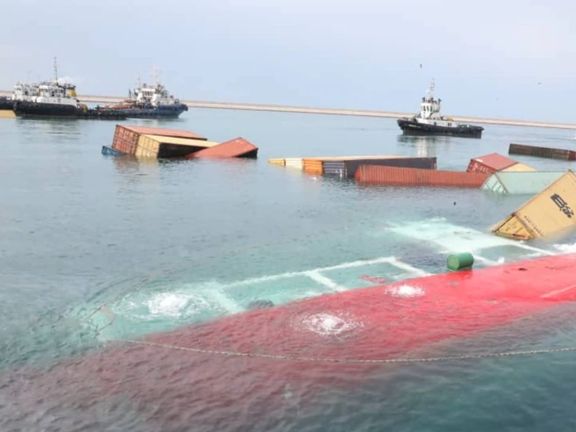
Iranian state media say a Tanzanian-registered cargo ship has sunk Tuesday at a dock in the southern Iranian port of Assaluyeh on the Persian Gulf.
IRNA news agency reported that the vessel named Anil overturned because containers being placed on it were configured incorrectly.
Iranian Ports and Maritime Organization says rescue forces were immediately dispatched and all 12 crew members of the vessel were rescued.
No further details have been published about the cargo of the Tanzanian-flagged ship.
Iran and Tanzania have less than $100 million in trade per year. Tanzania Imports from Iran totaled $11.51 million in 2021, according to the United Nations COMTRADE database on international trade.
Iranian officials claim the Islamic Republic has exported 2.2 million tons of non-oil products valued at one billion dollars to African countries from March 21, 2022 up to December 31.
Iran’s imports and exports have slowed down due to banking and oil sanctions imposed by the United States after President Donald Trump in 2018 withdraw from the 2015 nuclear deal between Tehran and world powers.
The Biden Administration appears to be more resolute in enforcing US sanctions, with designating individuals and third-party companies that are involved in one way or another in doing business with sanctioned Iranian entities.